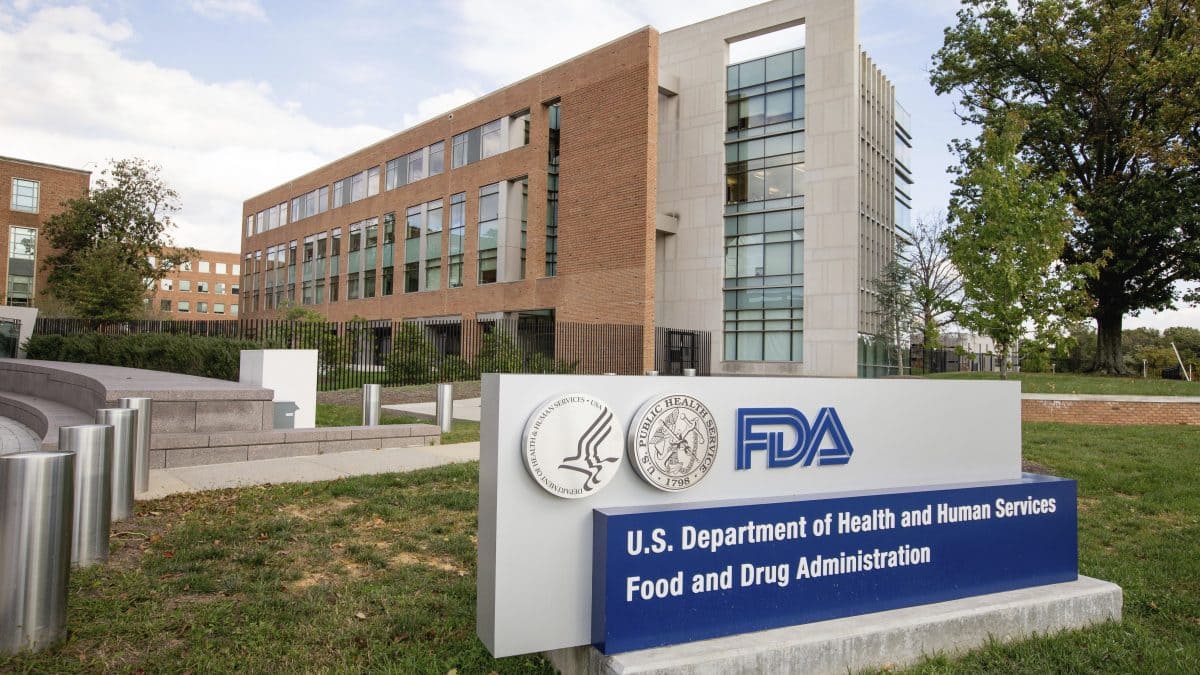Health
Trump Administration Moves to Lower Drug Prices, Impact on India Explored

The United States government has announced a significant initiative aimed at reducing prescription drug costs, which may also benefit Indian pharmaceutical manufacturers. The Trump administration is expediting the approval process for specific generic drugs, a move that could reshape the landscape of drug pricing and accessibility in both the US and abroad.
In a recent statement, the Food and Drug Administration (FDA) revealed plans to accelerate the approval of generic versions of biologics—complex drugs made from living cells. These biologics are often essential for treating serious health conditions, including cancer and autoimmune diseases. The FDA aims to facilitate competition against branded medicines, potentially lowering costs for American consumers.
This announcement follows the administration’s decision to abandon plans for tariffs on generic drugs imported from foreign nations, a relief for Indian drug manufacturers, who supply a substantial portion of the US’s generic medications. Currently, Indian companies account for nearly half of all generic medications purchased in the United States, with annual exports valued at approximately $20 billion (Rs. 1.77 lakh crore).
The FDA’s new approach will allow the marketing of biosimilars—generic versions of biologics—without requiring extensive comparative studies against their branded counterparts in some cases. These changes could halve the typical five-to-eight-year timeframe necessary to bring a biosimilar to market. FDA Commissioner Marty Makary emphasized that advanced testing could validate the efficacy and safety of biosimilars without the need for large human trials.
According to the FDA, while biologics constitute only five percent of prescriptions in the US, they account for over half of total drug spending as of March 2024. Despite the safety and effectiveness of biosimilars, their market share currently remains under 20 percent, primarily due to barriers such as physician hesitancy and complex patent litigation.
The pharmaceutical industry, represented by major players like Eli Lilly, Pfizer, Merck, and Bristol Myers Squibb, has expressed concerns that these changes could stifle innovation and reduce options for patients. A spokesperson from the Health and Human Services Department pointed out that manufacturers enjoy a dozen years of exclusivity for biologic medications, which influences their development decisions.
Critics within the administration argue that the pharmaceutical lobby has crafted a misleading distinction between biosimilars and interchangeable biosimilars, using this differentiation to limit competition. Secretary Robert F. Kennedy stated that biosimilars not only cost less—about half the price of their branded counterparts—but also drive down prices of original drugs by as much as 25 percent.
The FDA’s move comes in the wake of recent agreements between President Trump and drug manufacturers, who are under pressure to maintain revenues amidst growing competition. Current practices often require developers to conduct “switching studies” to gain interchangeable status for their biosimilars, a process that can prolong development and create confusion regarding safety.
In a bid for greater market interchangeability, the FDA is actively promoting these reforms. Commissioner Makary indicated that final guidelines would be released within three to six months, potentially reshaping the drug market landscape.
As India is recognized as the “pharmacy of the world,” this shift in US policy could significantly impact Indian drug makers, who are already pivotal in supplying affordable medications to millions of Americans. With ongoing discussions about drug pricing and access, the implications of these changes are likely to extend well beyond US borders.
In conclusion, the FDA’s efforts to streamline the approval of generic drugs represent a potential turning point in the fight against high drug costs. If successful, this initiative could not only alleviate financial burdens for American consumers but also bolster India’s position as a key player in the global pharmaceutical market.
-

 World5 months ago
World5 months agoSBI Announces QIP Floor Price at ₹811.05 Per Share
-

 Lifestyle5 months ago
Lifestyle5 months agoCept Unveils ₹3.1 Crore Urban Mobility Plan for Sustainable Growth
-

 Science4 months ago
Science4 months agoNew Blood Group Discovered in South Indian Woman at Rotary Centre
-

 World5 months ago
World5 months agoTorrential Rains Cause Flash Flooding in New York and New Jersey
-

 Top Stories5 months ago
Top Stories5 months agoKonkani Cultural Organisation to Host Pearl Jubilee in Abu Dhabi
-

 Sports4 months ago
Sports4 months agoBroad Advocates for Bowling Change Ahead of Final Test Against India
-

 Science5 months ago
Science5 months agoNothing Headphone 1 Review: A Bold Contender in Audio Design
-

 Top Stories5 months ago
Top Stories5 months agoAir India Crash Investigation Highlights Boeing Fuel Switch Concerns
-

 Business5 months ago
Business5 months agoIndian Stock Market Rebounds: Sensex and Nifty Rise After Four-Day Decline
-

 Sports4 months ago
Sports4 months agoCristian Totti Retires at 19: Pressure of Fame Takes Toll
-

 Politics5 months ago
Politics5 months agoAbandoned Doberman Finds New Home After Journey to Prague
-

 Top Stories5 months ago
Top Stories5 months agoPatna Bank Manager Abhishek Varun Found Dead in Well









